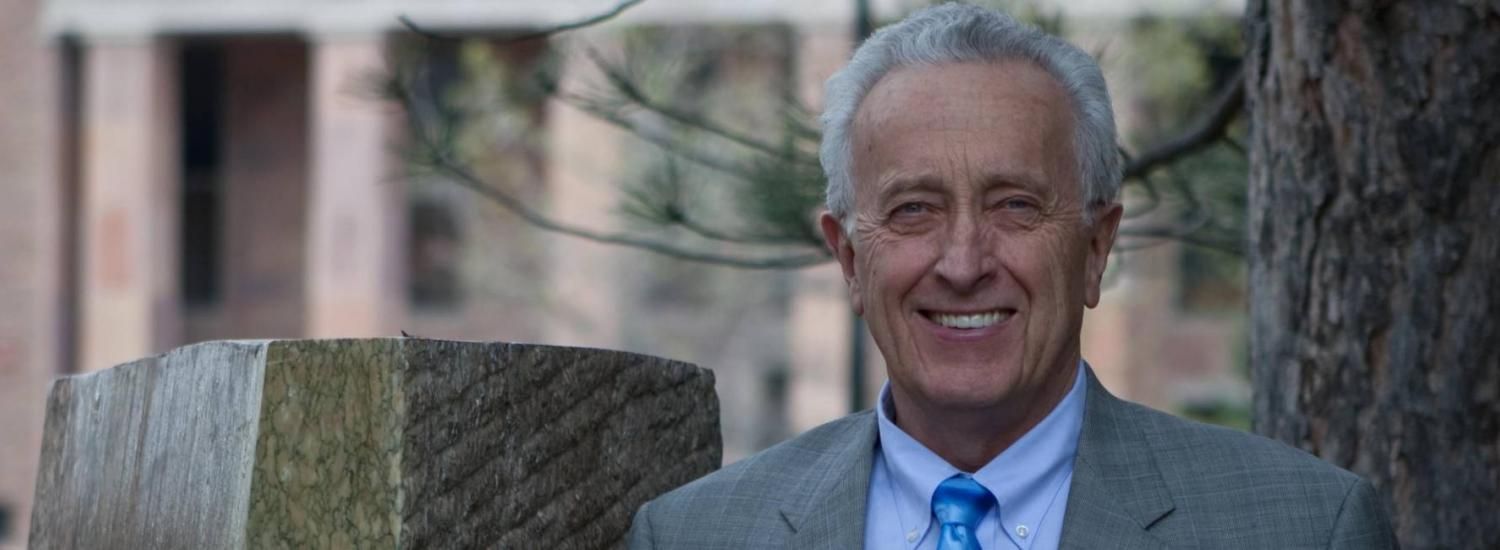CIRES fellow Robert Sievers retires after a distinguished career
Service to society was a core tenet of his six decades of research

“Science is power.” – Dr Robert Sievers
A pioneer in the fields of environmental and analytical chemistry is retiring in January 2022: Dr. Robert Sievers. During more than six decades of research in environmental and analytical chemistry, he has analyzed moon rocks, advanced studies of drinking water purification, developed new methods to measure chemicals in the atmosphere and found ways to isolate and purify cannabinoids.
One of his most significant accomplishments was creating novel devices for processing and delivering pharmaceuticals like vaccines. Propelled by a $20 million grant from the Bill and Melinda Gates Foundation, Dr. Sievers and his colleagues developed a cheaper, easier-to-distribute and needle-free (inhalable) version of the measles vaccine. This achievement, along with others made during his distinguished career, won him the 2009 Governor’s Award for High Impact Research through CO-LABS. Suzanne van Drunick, who was CIRES’ associate director for science at the time, said this achievement would ”directly benefit human health in developing parts of the world."
During a CO-LABS symposium honoring Dr. Sievers’ award, CIRES Fellow and Associate Director Maggie Tolbert presented her work in atmospheric chemistry, offering kudos to Dr. Sievers’ innovative approaches. In preparation for the event, Tolbert said she “went to Web of Science to look up papers with the words ‘atmosphere, organic and aerosol’ in the title.” That search showed that Dr. Sievers’ work with colleagues was ahead of its time, well before the current explosion of research in this field.”
During his distinguished research career, Dr. Sievers also prioritized service to society. And that service extends deeply into CU Boulder, where over four decades he:
- advised 44 Ph.D. students
- directed CIRES for 13 years (1980-93)
- served 12 years as CU Regent (1990-2002)
- spent two years as dean of the Graduate School
- attracted tens of millions of dollars in sponsored research to CU
- authored 200 publications, books, book chapters; and
- obtained more than 30 patents.
Reflecting on CIRES, Sievers summed the institute up: “Good people, working hard, well-funded, and well equipped.” Just like Dr. Sievers himself.